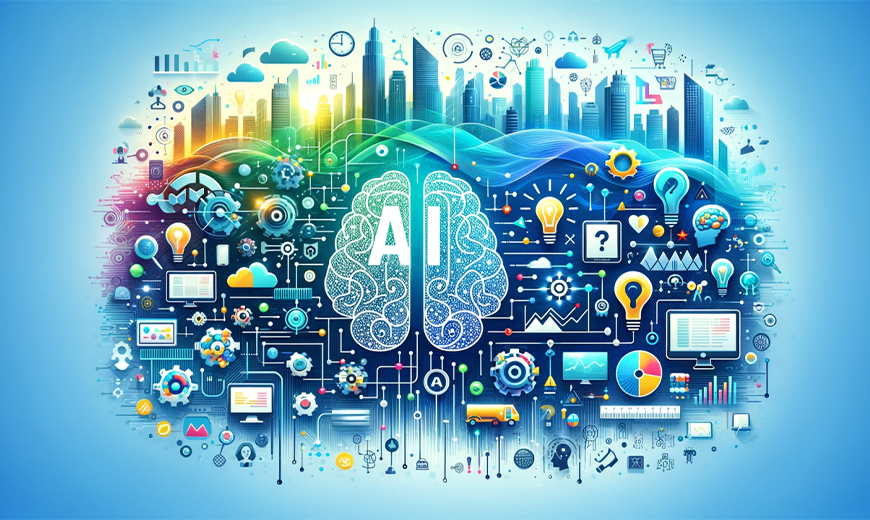Navigating the AI Revolution: Jobs, Challenges, and Opportunities
- The AI Landscape
Artificial intelligence has transformed industries, revolutionizing how we work, communicate, and live. As we embrace this technological leap, here’s how it affects the job landscape:

Iqbal Y. Shaikh
CEO Innovador Solutions
- Job Displacement vs. Job Creation
- Job Displacement
– Routine Tasks: AI excels at automating routine, repetitive tasks. Jobs involving data entry, basic analysis, and rule-based decision-making are vulnerable.
– Manufacturing and Logistics: Robots and AI-driven systems replace manual labor in factories and warehouses.
– Customer Service: Chatbots handle customer inquiries, reducing the need for human agents.
- Job Creation
– AI Specialists: Demand for AI engineers, data scientists, and machine learning experts surges.
– Human-AI Collaboration: New roles emerge, emphasizing collaboration with AI system
– Creativity and Complex Problem-Solving. AI frees humans to focus on creative, strategic, and complex tasks.
- Transforming Industries
- Healthcare
– Diagnosis and Treatment: AI aids in medical imaging, drug discovery, and personalized treatment plans.
– Administrative Efficiency: Streamlined paperwork and scheduling.
- Finance
– Algorithmic Trading: AI optimizes investment decisions.
– Risk Assessment: AI models analyze credit risk and fraud detection.
- Education
– Personalized Learning: AI adapts content to individual student needs.
– **Automated Grading**: Teachers receive support in grading assignments.
- Ethical Considerations
- Bias and Fairness
– Training Data Bias: AI systems learn from historical data, inheriting biases.
– Algorithmic Fairness: Ensuring fairness and transparency in AI decision-making.
- Job Transition and Re-skilling
– Lifelong Learning: Workers need continuous up-skilling to adapt to changing job requirements.
– Government Policies: Support for displaced workers and re-skilling programs.
- The Future of Work
– Hybrid Workforce: Humans and AI collaborate seamlessly.
– Creativity and Emotional Intelligence: Skills that remain uniquely human.
Conclusion
The AI revolution is both disruptive and promising. As we navigate this transformation, let’s prioritize ethical AI, invest in education, and create a future where technology enhances human potential. 🌟
References:
- [AI’s Impact on Jobs and Work Is a Choice Between Two Futures] (https://ssir.org/articles/entry/ai-impact-on-jobs-and-work)
- [AI could replace equivalent of 300 million jobs – report] (https://www.bbc.com/news/technology-65102150)
- [AI Will Transform the Global Economy. Let’s Make Sure It Benefits Humanity] (https://www.imf.org/en/Blogs/Articles/2024/01/14/ai-will-transform-the-global-economy-lets-make-sure-it-benefits-humanity)
- [AI has a positive impact on job creation, and we have proof of it] (https://resources.workable.com/stories-and-insights/impact-of-ai-on-job-creation)
Author









